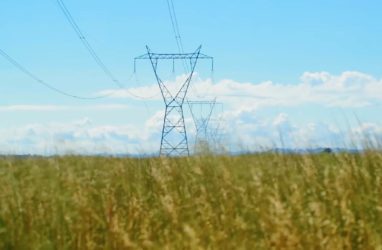Feed aggregator
Solar Insiders Podcast: Getting to grips with solar duck curve
 We're back! Gabrielle Kuiper on why rooftop solar should not be ignored by grid planners. Plus: Latest news including dire warning for PV installers on inverters.
We're back! Gabrielle Kuiper on why rooftop solar should not be ignored by grid planners. Plus: Latest news including dire warning for PV installers on inverters.
The post Solar Insiders Podcast: Getting to grips with solar duck curve appeared first on RenewEconomy.
Budget shows penny has dropped on renewables – but $4bn is just a down payment
 It has been a cathartic week for the clean energy sector. Finally, it feels like someone is listening. But the $4bn pledged in the budget pales against Australia's rivals.
It has been a cathartic week for the clean energy sector. Finally, it feels like someone is listening. But the $4bn pledged in the budget pales against Australia's rivals.
The post Budget shows penny has dropped on renewables – but $4bn is just a down payment appeared first on RenewEconomy.
How The Good Guys got it wrong on the risks of gas cooktops, and Bob Katter’s new vest | Temperature Check
The sales pitch for new cookers ignored concern about the danger of burning fossil fuel in your home, and the move towards electric induction hobs
Australian retailer The Good Guys removed an article on its website this week that had described gas cooktops as efficient and affordable without mentioning the growing health and climate concerns of burning a fossil fuel in your kitchen.
The article, which was pulled after this column sent in questions, is nevertheless archived and had compared gas stoves to new electric induction cooktops.
Continue reading...To get to net zero, policymakers need to listen to communities. Here's what they can learn from places like Geelong
CP Daily: Wednesday May 10, 2023
Australia to finance Article 6 demonstration carbon credit projects under IPCOS, action plan says
Carbon Policy Officer, Global Green Growth Institute – Vientiane
Swedish renewables giant plans rapid Australia expansion after buying out solar developer
 Founder of Australian solar and storage developer could walk away with another $60 million after sale of business to Swedish renewables giant.
Founder of Australian solar and storage developer could walk away with another $60 million after sale of business to Swedish renewables giant.
The post Swedish renewables giant plans rapid Australia expansion after buying out solar developer appeared first on RenewEconomy.
Why western Victoria needs – and wants – new transmission lines
 We need to upgrade our electricity transmission grid so more price crushing, zero emissions renewable energy projects can be built and connected.
We need to upgrade our electricity transmission grid so more price crushing, zero emissions renewable energy projects can be built and connected.
The post Why western Victoria needs – and wants – new transmission lines appeared first on RenewEconomy.
Police respond to a yelling... goat?
Coal pit to wind farm: Energy giant to fast-track energy makeover for old mine sites
 Researchers in Germany are investigating the possibility of building wind farms on closed open cast coal mines much sooner than was previously possible.
Researchers in Germany are investigating the possibility of building wind farms on closed open cast coal mines much sooner than was previously possible.
The post Coal pit to wind farm: Energy giant to fast-track energy makeover for old mine sites appeared first on RenewEconomy.
Renewable energy projects worth billions stuck on hold
Planting Design Specialist, Taking Root – Vancouver/Remote
California approves intentional reversal of over 100k compliance offsets
WA to fund Australia’s biggest battery as part of $2.8bn renewable and storage plan
 WA to fund country's biggest battery - a 2,000MWh facility at the coal town of Collie - as part of a multi-billion budget package supporting renewables and storage.
WA to fund country's biggest battery - a 2,000MWh facility at the coal town of Collie - as part of a multi-billion budget package supporting renewables and storage.
The post WA to fund Australia’s biggest battery as part of $2.8bn renewable and storage plan appeared first on RenewEconomy.
Dutch startup raises €1.2 mln to fund carbon-negative food production
Smoke from the Black Summer fires could have made the triple La Niña more likely
Fear and Wonder podcast: the solutions needed to address climate change already exist
Soap can make humans more attractive to mosquitoes, study finds
Researchers say mosquitoes may be attracted to soap because when not feeding on blood they supplement sugar intake with nectar
Lathering up with soap might seem a reasonable mosquito-evasion strategy on the basis that if they can’t smell you, they can’t bite you.
However, a study suggests that rather than helping you go incognito, soapy fragrances could make you a more attractive target, with mosquitoes favouring the scent of volunteers who washed with three out of four popular soap brands tested.
Continue reading...


